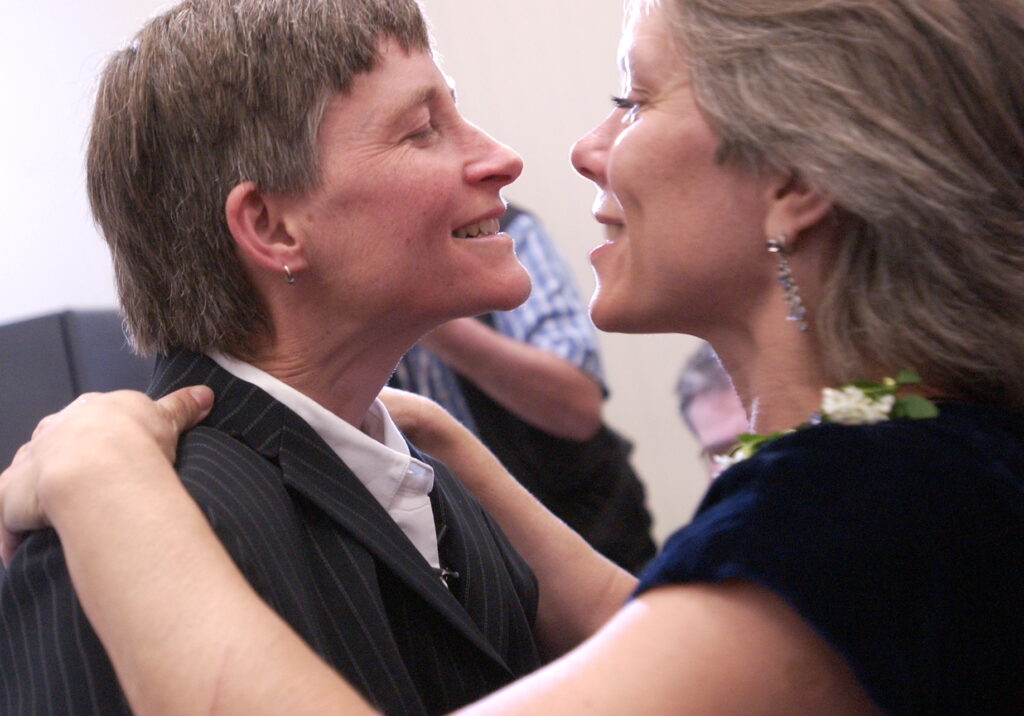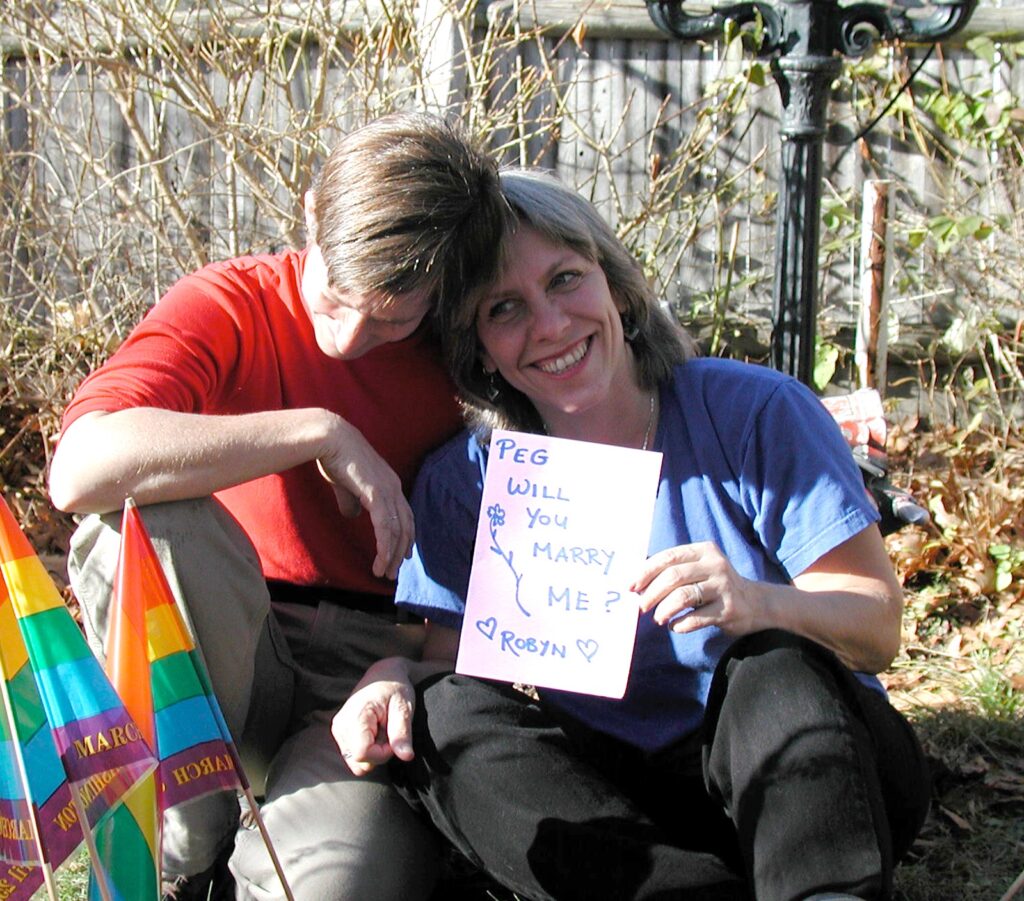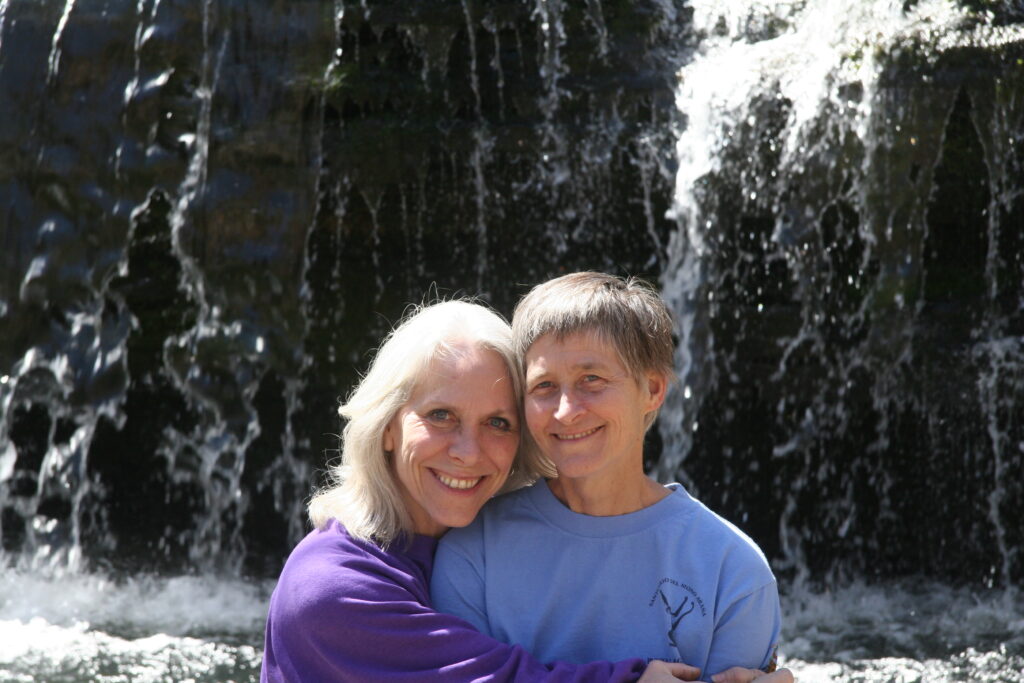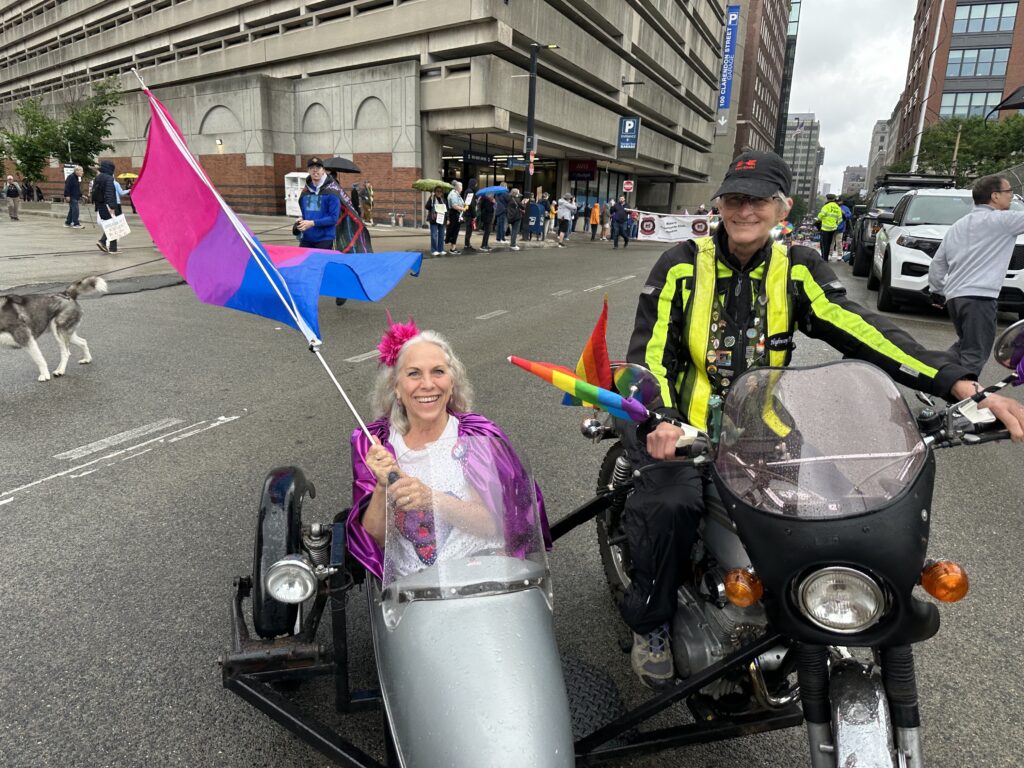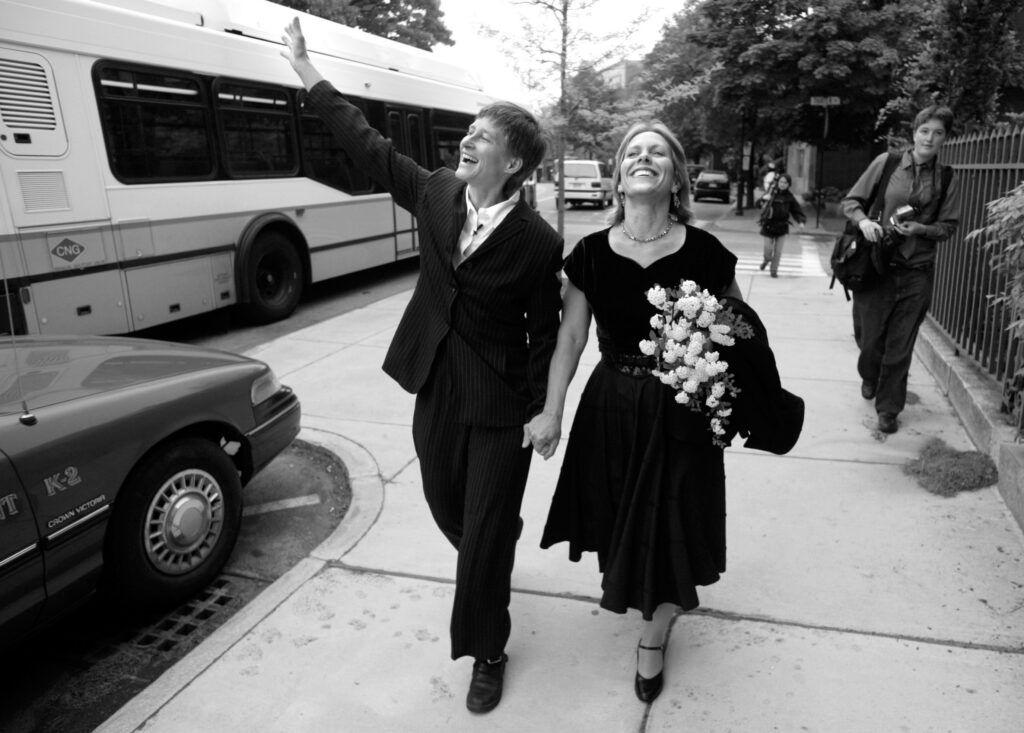Ten years ago, the United States crossed a historic threshold when the Supreme Court issued its landmark decision in Obergefell v. Hodges, making marriage equality the law of the land. For many LGBTQ+ people, it was more than just a legal win – it was an affirmation of dignity, respect, and the sanctity of all love. But for Robyn Ochs, an educator and speaker known for her bisexual+ advocacy work, the decision was also deeply personal. Her love story with her wife, Peg, is a testament to the very values the Obergefell decision sought to protect.
Their story didn’t begin in a courtroom or a protest, but with something far more intimate – electricity. Literally. “Peg was my electrician,” Robyn told Lambda Legal, laughing, “but we did not meet socially through that route.” Instead, they later connected at a dance performance they both attended, thanks to a mutual friend. “We all sat together, talked before the show, and went out for pizza after,” remembered Robyn. Two weeks later, they had their first date. And the sparks were instantaneous. “The joke we make,” Robyn said, “is that there was a lot of electricity between us.”
At the time, neither Robyn nor Peg were looking for a long-term relationship. “I had been happily single for six years. I was taking a break. Peg had also been on her own for a while,” Robyn noted. “But we both decided we wanted to give this a chance.” Nine months later, they moved in together. Not long after, they registered as domestic partners in Cambridge, Massachusetts, largely so Peg, an independent contractor, could access Robyn’s health care. “She was paying so much out of pocket,” Robyn said. “It was practical – but it was also real. It meant something.”
That meaning deepened in 2003, when the state’s Supreme Judicial Court ruled in Goodridge v. Department of Public Health that same-sex couples had a right to marry. “We had been together almost seven years at that point. Suddenly, marriage was a possibility.”
Robyn and Peg each waited for the other to propose – a cute standoff of sorts that led to a story as charming as it is symbolic. A year earlier, while in Australia, Robyn saw a documentary about bowerbirds, a species in which the males create elaborate displays of blue objects to court mates. “I told Peg that story when we were first dating,” she said. One day, after a late evening visit, Robyn came home to find “a row of blue objects” outside her house – a playful but anonymous showing of affection. “I called Peg and asked if she did it. She said, ‘I don’t know what you’re talking about.’ She never confessed.”
When it came time to propose, Robyn took a page from the bowerbirds’ playbook and set up her own grand, blue gesture. She arranged a runway of blue household items from their kitchen to the backyard — Howard Dean campaign cups, thread, and bowls. At the end of the runway was a card: “Peg, will you marry me?” Peg said yes immediately. “We still have photos,” Robyn said, her face glowing. “My neighbor actually documented it.”
Robyn and Peg were married on May 17, 2004 – the very first day same-sex couples could legally marry in Massachusetts. “We wanted to be married by someone who was excited to marry us, not just someone tolerating us,” recalled Robyn. That someone was the town clerk of Brookline, whose enthusiastic support they had read about in a local newspaper.
The couple was the town clerk’s first appointment of the day. But they weren’t alone. “We went with six other couples from our neighborhood – some had been together a few years, others over 25,” Robyn said. “We all caravaned together. Peg has a motorcycle with a sidecar. I rode in the sidecar.”
Documented by friends and loved ones, and even The Washington Post, their wedding day was both a personal milestone and historical one. “Marriage equality didn’t create our love. It affirmed it. It gave it legal standing. It let us say to the world: this matters.”
Today, Robyn and Peg’s story serves as a powerful reminder that love, community, and visibility are not merely abstract ideas — they are tangible, daily acts of resilience and care. And its stories like theirs that form the foundation of LGBTQ+ history.
As we reflect on the 10th anniversary of Obergefell, let us remember that this ruling opened the door for futures and possibilities that were previously unknown and inaccessible to the LGBTQ+ community. And that these futures and possibilities – like the sweet, enduring love story of Robyn and Peg – deserve continued protection, now and forever.

